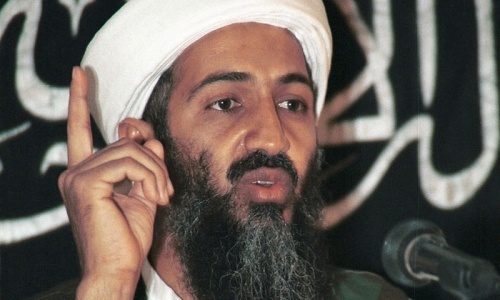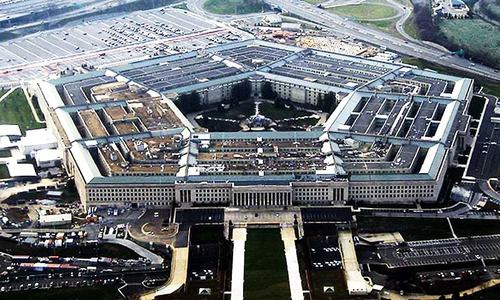ISLAMABAD: “I get these reports every morning. They are somewhat painful to read since, as you know, in Pakistan, the media can be particularly outrageous. However, we can’t ignore the fact that these talk shows are the most watched programming,” former US undersecretary of state Judith McHale wrote in an email to Hillary Clinton in Feb 2010.
The reports she refers to are exhaustive summaries of Pakistani primetime talk shows that log the discussion on various local TV shows on a daily basis. The media summaries, which regularly arrive in the email inboxes of US embassy employees or State Department officials in Washington, appear repeatedly in the US presidential candidate’s recently declassified emails, most frequently between 2009 and 2012.
The emails offer a rare insight into Washington’s engagement with Islamabad through the lens of the local media. In background discussions with Dawn, current and former embassy officials admitted that journalists and media were the primary sources of information for many officials who came to Pakistan.
The summaries of talk shows and news coverage, which contain exhaustive details on what-was-said and who-was-saying-it, would be discussed among Ms Clinton’s aides at the Washington level if there was something of interest to them.
Michael Kugelman from the Woodrow Wilson Centre explained that the importance Washington placed on Pakistani media could be gauged from the fact that the embassy in Islamabad actually started issuing official statements meant to “correct the record” when `false or misleading’ claims were made in media about the US or its policies.
“It’s an initiative that didn’t last long – and at any rate I’m not sure how effective it was given that many Pakistanis, including those most likely to believe the media assertions that the US was trying to reject, probably were not aware of these US counter-statements,” he said.
For example, a series of emails exchanged between State Department officials in April 2010 expressed frustration with former ISI chief Hamid Gul’s allegations that the US is implicated in the assassination of Benazir Bhutto.
The exchange notes that Mr Gul was one of the people named by Ms Bhutto as possible ‘threats to her security’ in a letter sent to Gen Musharraf before she came to Pakistan. This factoid, the emails indicate, was shared with Pakistani media outlets, and at least one of whom aired it within an hour of it being sent out.
“Whenever there is something that affects US interests, or there is a clarification that needs to be made regarding US role in any matter, they (US officials) are on it almost immediately,” said a former embassy staffer.
But, he said, since most officials did not necessarily have a great deal of context about Pakistan, they relied on media coverage and interviews with journalists to get a feel for how issues were viewed domestically.
Christopher Snipes, spokesperson for the US embassy in Islamabad, told Dawn: “One of the best ways to understand [Pakistan] is to read the news from a variety of sources and in a variety of languages.”
He said that all US embassies looked at media in the language of the country they were in to keep “well-informed on current events”. In Pakistan, he said, “there are more newspapers circulated in Urdu than in English and most television news is broadcast in Urdu; we read the Urdu press and watch Urdu television news alongside the English media.”
But the analysis contained in the emails goes deeper than just understanding cultural context. A special analysis of Pakistani media from May 2, 2011 – the day Osama bin Laden was found and killed in Abbottabad – notes that while “no outlets openly expressed sympathy for Bin Laden”, two TV show hosts used the word ‘shaheed’ (martyr) to describe him. The report also goes on to gauge the overall slant of media coverage over the Abbottabad raid, but notes that the “tone and tenor [of the coverage] remains relatively positive”.
These summaries also highlight news reports and opinion articles from the print media, and each newspaper’s circulation figures, average readership and other such metadata is included with every summary.
“This helps the officials understand who should be given importance and who should be ignored. There are certain columnists or hosts who are opinion leaders, who are widely watched and followed; they are the ones who are approached. Not everyone deserves to be taken as seriously,” said the former embassy staffer, who was privy to the compilation of the media analysis reports.
One email contains the complete English translation of an op-ed about former US Ambassador Cameron Munter, highlighting his energetic efforts during the flood relief operation. The writer compares the diplomat’s zeal to the lack of support shown by local politicians, a comparison that prompts congratulatory messages from other State Department employees in the email chain.
However, in more recent years, Mr Kugelman says, the US has become increasingly interested in social media in Pakistan, mostly because of its significant demographics: the urban, English-speaking, tech-savvy middle and upper classes.
“You can be sure that Washington also keeps a tab on how Pakistani militant groups use social media – which is rooted in Washington’s broader recognition that terror groups around the world, led by IS (militant Islamic State group), see social media as a highly strategic tool for recruitment.”
Email reproduced

The body of this email is attributed to Vali Nasr, a leading expert on the Middle East, who was a senior adviser to Richard Holbrooke when the latter was US Special Representative for Afghanistan and Pakistan.
The email from US presidential hopeful Hillary Clinton’s mailbox is one of thousands recently declassified by the US government. Jacob Sullivan, who sent the email, was Hillary Clinton’s deputy chief of staff during her time as secretary of state.
The time period suggested by the email’s date, Jan 11, is the same week that the Supreme Court was hearing both — a review petition on the Memogate case and a contempt of court case against then prime minister Yousuf Raza Gilani.
On Jan 16, the court had issued a show cause for contempt of court to the prime minister, as he had not written to Swiss authorities to reopen cases against then president Asif Ali Zardari.
The NRO (National Reconciliation Ordinance) case, as it was popularly known, was seen to pose a threat to the government’s existence — until Mr Gilani was disqualified and smoothly replaced, defying the rumour that abounded in the country at the time.
However, it is not clear if the email refers to the contempt case or the Memogate crisis as it adds later that, “Zardari has flown to Dubai. He has said he will return tomorrow. Whether he does or not could be a big indicator.”
Published in Dawn, February 7th, 2016

















































